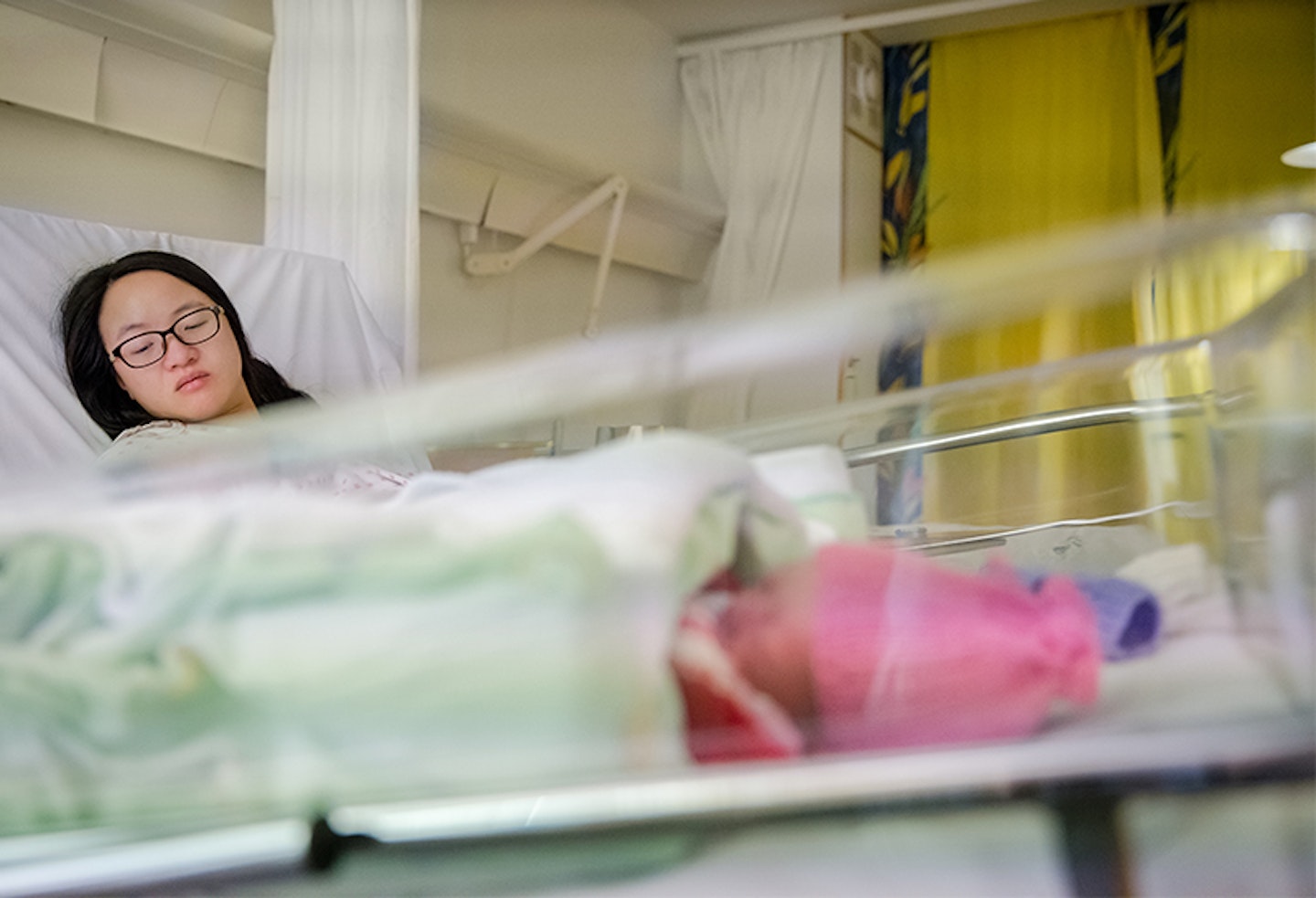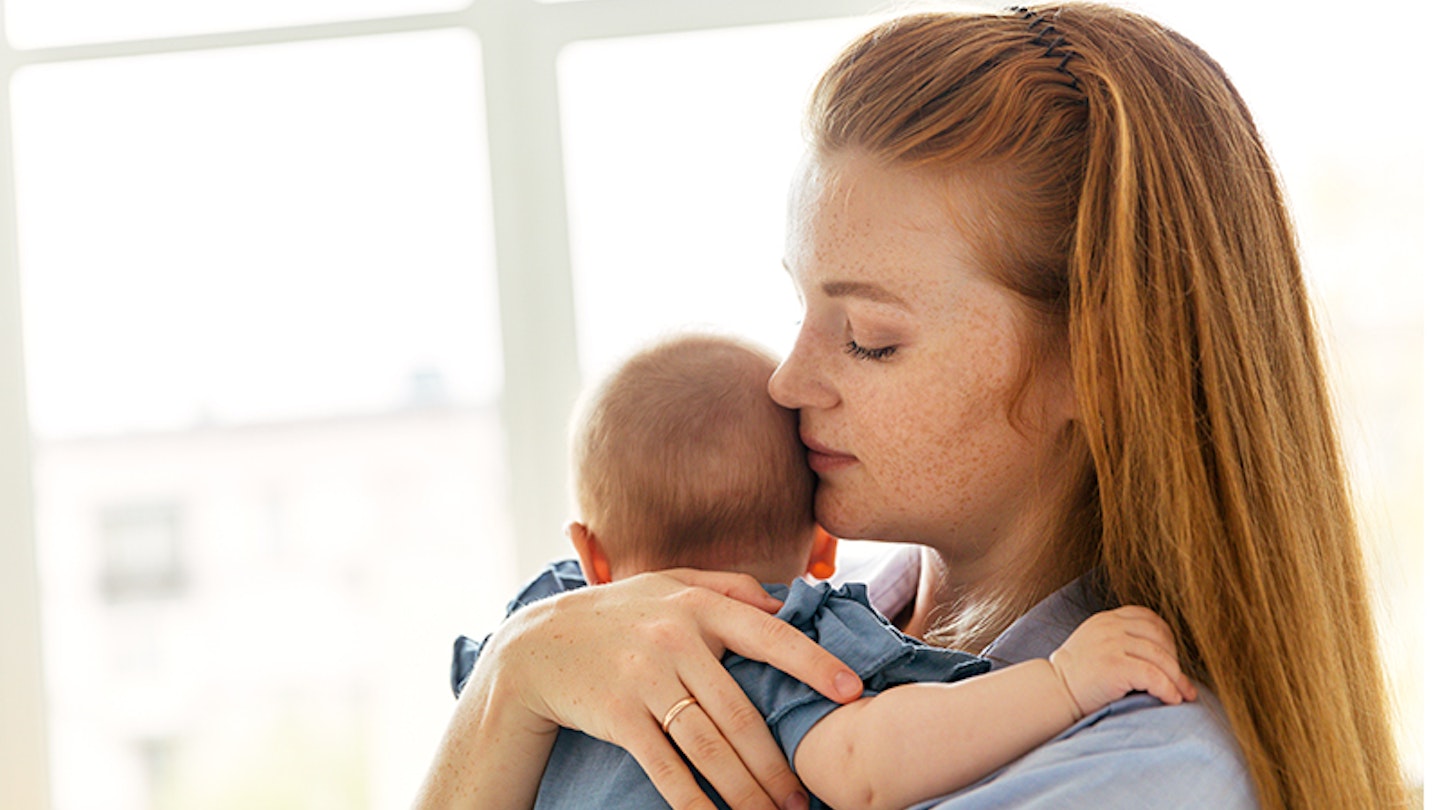If your birth didn't go as you'd have liked or proved to be a distressing experience, you may be suffering from what's known as birth trauma. In an effort to raise awareness of birth trauma and provide people with support, Birth Trauma Awareness Week was initially created back in 2017 and continues each year, usually with a theme.
Dr Kim Thomas, CEO of Birth Trauma Association explains more.
When is 2023’s Birth Trauma Awareness Week?
"Awareness Week this year will run from 16-22 July. We are once again planning some expert Q&As and a social media campaign. Watch this space (or our social media for more information). "
This year it is not centred around a set theme, allowing communities, parents and health professionals to discuss, share and cover a wider range of topics surrounding birth trauma.
How did Birth Trauma Awareness Week come about?
"We had our first Awareness Week in 2017 and were amazed at the response – we had coverage on the BBC and some national newspapers, and a lot more women found us as a result. We decided we needed to raise the profile of birth trauma – it was clear awareness of the condition was increasing but there were still a lot of people who didn’t know it existed or how to find help.
"These days we’re placing a greater emphasis on social media, focusing on reaching out to women through Instagram and Facebook."
What is birth trauma?
"Birth trauma is a shorthand name for the experience of post-traumatic stress disorder (PTSD) after birth. PTSD has four groups of symptoms: reliving the trauma through flashbacks or nightmares; hyperarousal, which means feeling constantly in a state of high alert or anxiety; avoidance of anything that reminds you of the trauma (eg tv programmes about birth, or hospital appointments); and negative cognition, which encompasses things like low mood and inability to remember parts of the traumatic event.
"At the Birth Trauma Association, we tend to use the term 'birth trauma' more loosely to encompass feelings of psychological distress and trauma after birth, because we find that a lot of women feel traumatised by birth without necessarily having the full set of symptoms necessary for a PTSD diagnosis."
Who can suffer from it?
"Any woman who’s experienced her birth as traumatic can suffer from birth trauma. There can be a number of reasons why a birth was traumatic. Very often there’s a point where the woman fears that she or her baby is going to die, so we see a lot of women who had emergency caesareans, or forceps births, or postpartum haemorrhages, or whose baby had to spend time in the Neonatal Intensive Care Unit (NICU).
"Sometimes a birth that looks straightforward to an outside observer can feel traumatic to the woman – we always say that if the woman found it traumatic, then it was traumatic. The best research available suggests that about 4 per cent of women who give birth go on to develop full-blown PTSD – that’s about 30,000 a year in the UK. Birth partners can also develop PTSD from witnessing a traumatic birth – watching an emergency where you fear you might lose your wife or baby can be a terrifying experience."
How will I know if I’ve experienced/am experiencing birth trauma?
"You’ll typically experience the symptoms mentioned above – flashbacks, for example, or a sense of being on high alert. Some women tell us that they are woken several times a night by nightmares about the birth. Or they’ll walk past the hospital and it will trigger a flashback. It’s very common for women to become extremely anxious about their baby’s safety – standing over the baby’s cot to make sure it’s still breathing, for example, or refusing to let anyone else hold it in case they harm it. Other women say that they find it hard to bond with their baby. It’s a debilitating condition to live with."

Who is more likely to experience birth trauma?
Birth trauma can happen to anyone, from any background or walk of life, however, you may be more susceptible to it if your birth required lots of medical interventions or you are a victim of sexual assault, as giving birth can cause some of the traumatic memories to resurface.
It is not dependent on the length of your birth either, or how early or late your baby was, as traumatic events can happen at any time.
Is there a difference between birth trauma and postnatal depression?
"Yes, though there can be an overlap in symptoms – anxiety tends to be a feature of both, for example. Birth trauma is often misdiagnosed as postnatal depression (also known as PND), but the two conditions feel different – women with birth trauma often say that although they knew something was wrong, they were also sure it wasn’t depression. Probably the biggest difference is the presence of flashbacks or nightmares – that’s a strong sign that it’s birth trauma.
"Just to complicate things a little, some women do suffer from both conditions and will need treatment for both."
How can I support a person suffering from birth trauma?
Whether you're a partner of someone who is going through this difficult time, or a friend, family member or colleague, it's important to show that you understand and be a physical support with baby (if they want you to), as well as an emotional one.
Don't force them to relive the memories of that day or time, but let them know that you're always there for them whenever they want to talk about their feelings surrounding those events that led up to or caused the trauma, and listen to them without judgement.
Whilst many mothers may be reluctant to get help for numerous reasons, it's nothing to be ashamed of, so encouraging them to do so is very beneficial also. If they're not ready to take this huge but important step, they can take a look at the resources below, where professionals and other sufferers have shared their stories and can support them with advice.
How can I get involved?
You can follow Birth Trauma Association on social media to keep up to date with their latest events:
Instagram: @birth_trauma_association_uk
Twitter: @birth trauma
Facebook: Birth Trauma Association - UK
We also very much welcome donations, however small – you can donate at https://www.justgiving.com/birthtraumaassn.
Where can I get support for my own birth trauma?
"You can contact our team of peer supporters at support@birthtraumaassociation.org.uk – they have all had birth trauma themselves and are keen to help. You are also very welcome to join our private Facebook group. It has 11,000 members and is highly active – it’s a good way of having your story heard by people who will understand. You can find it at www.facebook.com/groups/TheBTA
"A lot of women benefit from professional help, so we’d also recommend going to your GP and asking for a referral either to trauma-focused CBT or EMDR (eye movement desensitisation and reprocessing), two therapies that are very effective at treating trauma."
About the expert
Dr Kim Thomas is the CEO of Birth Trauma Association. She is a freelance journalist specialising in healthcare, social care and education.
